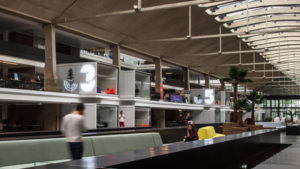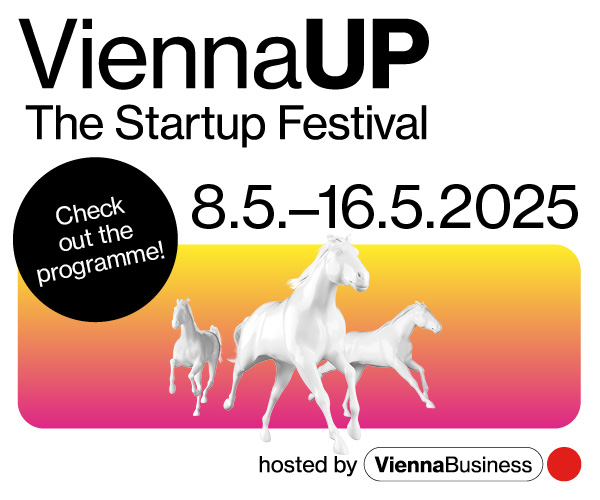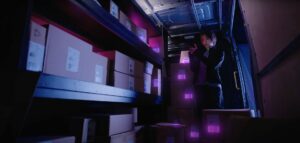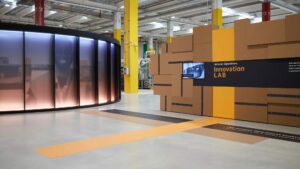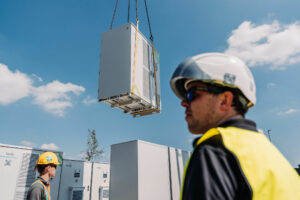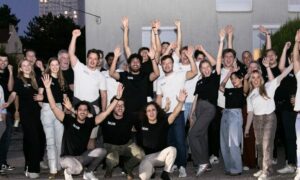Station F: Inside The World’s Largest Startup Hub
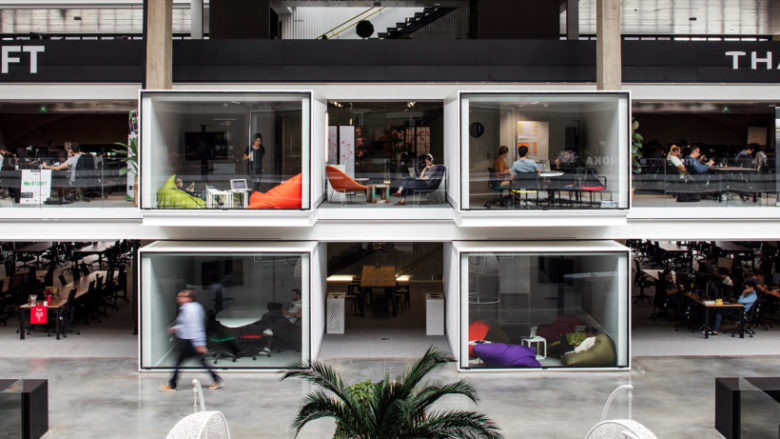
Actually, the “F” stands for “Halle Freyssinet”. The huge halls of the former Paris freight yard, which was built in the 1920s, are now called Station F and are home to around 1,000 startups, about 30 VCs and dozens of innovation departments from Corporates. What was once a rail depot, is today a hub where founders and large companies are forging ahead of the digital business models of tomorrow.
An “F” for France
Naturally, the “F” also stands for “France”. With station F, the French entrepreneur Xavier Niel has equipped his country with a startup hub that is unrivaled anywhere in the world. Opened in 2017 by President Emmanuel Macron, the 3.4-acre building has become the flagship project of the French start-up scene.
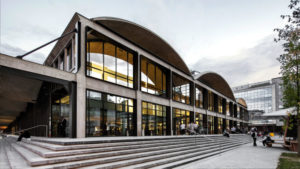
And perhaps most unusual for France: The “official” language of the hub is English – this should underline its international orientation. After all, Station F attracts not only Parisian startups, but young entrepreneurs from all over the world. Just as Xavier Niel, with his company Free, started to stir up the French Internet and mobile markets in 1999, thanks to aggressive pricing policies, in the future the startups at station F are expected to cause disruption.
“No-brainer”
“Everyone wants to get in here, and everyone wants to stay in here,” says Michael Weisz, co-founder of the Paris startup Shapeheart. As one of the few hardware companies, it develops magnetic (and patented!) Sports wristbands and brackets for smartphones in Station F. “The location, the network, the price – to move here is a no-brainer,” says Weisz.
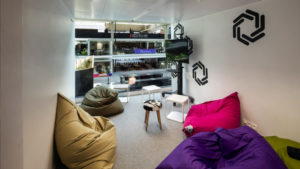
Around €200 monthly costs the desk, including all events, programs, and other services. Only for the paper from the printer, you have to pay extra, but paper usage is anyway limited here. The rush to get into the Founders Program is impressive, yet it requires serious effort.
Over 11K start-up companies are applying each year, with just under 9% being accepted. After a maximum of two years, the startups have to move on – in Paris, this can be quite expensive. “The startup scene has been aggregated here, everything is under one roof,” says Andrea Tassistro, CEO of the Swiss startup Foodetective. His company is here to break out of the small Alpine country and conquer the French market.
Location, Network, Price
Above all, it is the community and the direct contact to the other founders that makes station F so popular. “If you have a problem, there is always at least one other founder who has had the same problem and can help you,” says Weisz. In the shared Slack Channel, help seekers and providers quickly find each other when they miss out on the sprawling halls between the meeting containers.
Antonia Gsinn of the Milanese startup SailSquare agrees with Weisz. “Station F is a great way to get in touch with many other startups, especially as a foreigner. And the linguistic hurdle is not there, because all speak English anyway, ” she says.
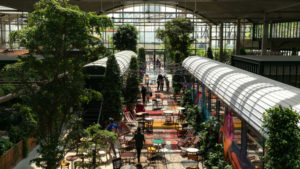
From Paris, Gsinn heads the expansion of the booking platform for sailing holidays in Central Europe as a DACH manager. “Price and offers are very attractive, especially in a rather expensive city like Paris,” she says. And: “The close contact to the VCs and corporates is definitely an argument to come here.”
A Shortcut to the Ministry
Facebook, Apple, Google Amazon Web Services, Adidas or Microsoft – the logos of large companies testify that the Station F, in which founder Niel invested 250M, show that Station F doesn’t rely on startups rents only. Corporates can also rent the desks – a total of 3,000 – and then pass them on to founders who will include them in their own accelerator or incubator programs.
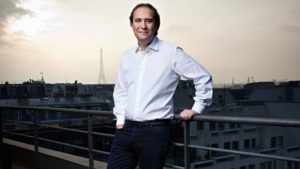
Facebook has chosen station F as the world’s first hub, where it set up its own startup program with the “Startup Garage Paris”. And of course, this decision has strategic political background: In Paris, the social network, which has been criticized for years, is working with startups on “Data Privacy”, a pretty European topic.
Another interesting detail: The French Ministry of Economic Affairs has set up a branch office in Station F with around 30 employees. If you have questions about taxes, subsidies or visas, you can talk to the civil servants right on the spot. Questions are not always answered, says a founder, “but at least you can ask somebody.”
“The French market likes the French”
To show even more openness, Station F has launched an initiative with the “Fighters Program”, giving the underprivileged founders and refugees the chance to participate in the programs and many events for free. Most recently, 14 founders have joined. One of them is a former detainee who sat for car theft. Now he works in the Station F on a device aimed to prevent exactly such thefts.
As open Station F might be, the French is not so open towards startups from abroad. Local startups often only work nationally, and a deal with one of the CAC40 (the acronym for the leading index of the top 40 French stock corporations) is considered an accolade. For startups from abroad, it is harder to close such cooperations. Or as founder Andrea Tassistro from Switzerland says: “The French market likes the French.”
